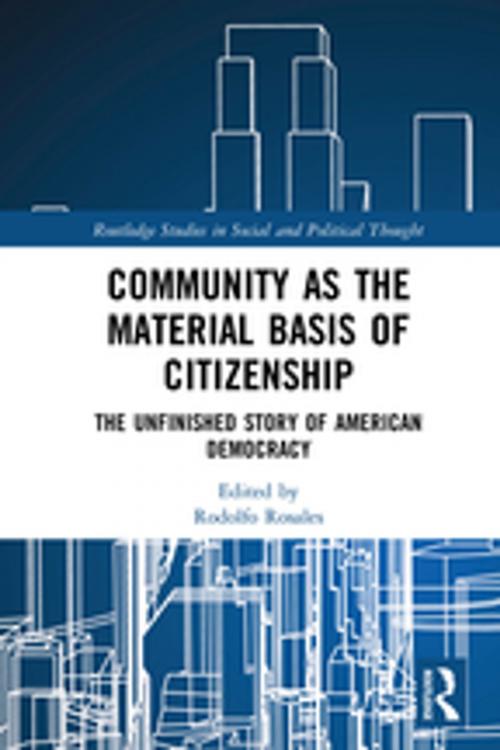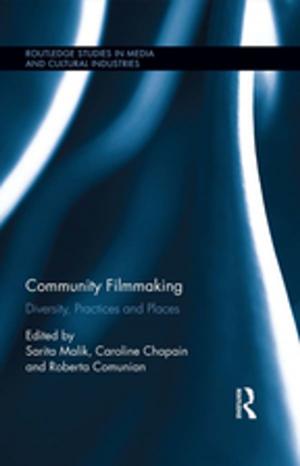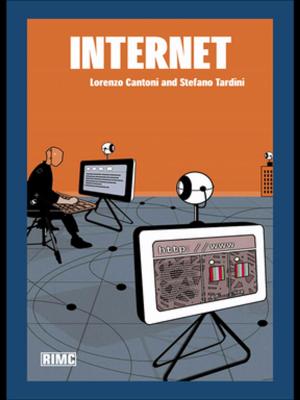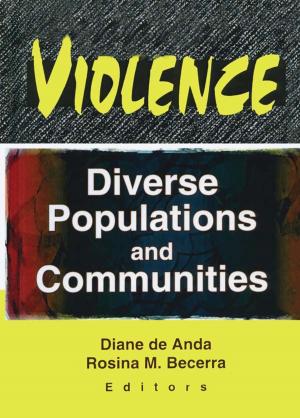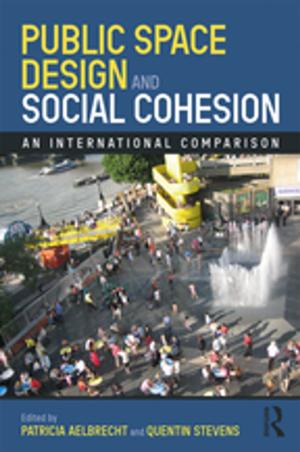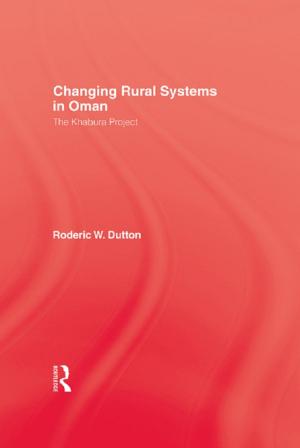Community as the Material Basis of Citizenship
The Unfinished Story of American Democracy
Nonfiction, Social & Cultural Studies, Political Science, Politics, Reference, Social Science| Author: | ISBN: | 9781351624176 | |
| Publisher: | Taylor and Francis | Publication: | November 1, 2017 |
| Imprint: | Routledge | Language: | English |
| Author: | |
| ISBN: | 9781351624176 |
| Publisher: | Taylor and Francis |
| Publication: | November 1, 2017 |
| Imprint: | Routledge |
| Language: | English |
Community as the Material Basis of Citizenship addresses community as the site of participation, production, and rights of citizens and brings to bear a profound critique of a collective process that has historically excluded working class communities and communities of color from any real governance. The argument is that the status of citizenship has been influenced by a society that emphasizes the role of property in defining legitimacy and power and therefore idealizes and institutionalizes citizenship from an individualistic perspective. This system puts the onus on the individual citizen to participate in their governance, while the political reality is that organizations and corporations and their interests have great power to influence and govern. The chapters present an exciting departure from the long-standing traditions of the social basis of citizenship. In Community as the Material Basis of Citizenship, Rodolfo Rosales and his contributors argue that citizenship is a communally embedded and/or socially constituted phenomenon. Hence, the unfinished story of American Democracy is not in the equalization of communities but rather in their ability to participate in their own governance – in their empowerment.
Community as the Material Basis of Citizenship addresses community as the site of participation, production, and rights of citizens and brings to bear a profound critique of a collective process that has historically excluded working class communities and communities of color from any real governance. The argument is that the status of citizenship has been influenced by a society that emphasizes the role of property in defining legitimacy and power and therefore idealizes and institutionalizes citizenship from an individualistic perspective. This system puts the onus on the individual citizen to participate in their governance, while the political reality is that organizations and corporations and their interests have great power to influence and govern. The chapters present an exciting departure from the long-standing traditions of the social basis of citizenship. In Community as the Material Basis of Citizenship, Rodolfo Rosales and his contributors argue that citizenship is a communally embedded and/or socially constituted phenomenon. Hence, the unfinished story of American Democracy is not in the equalization of communities but rather in their ability to participate in their own governance – in their empowerment.
